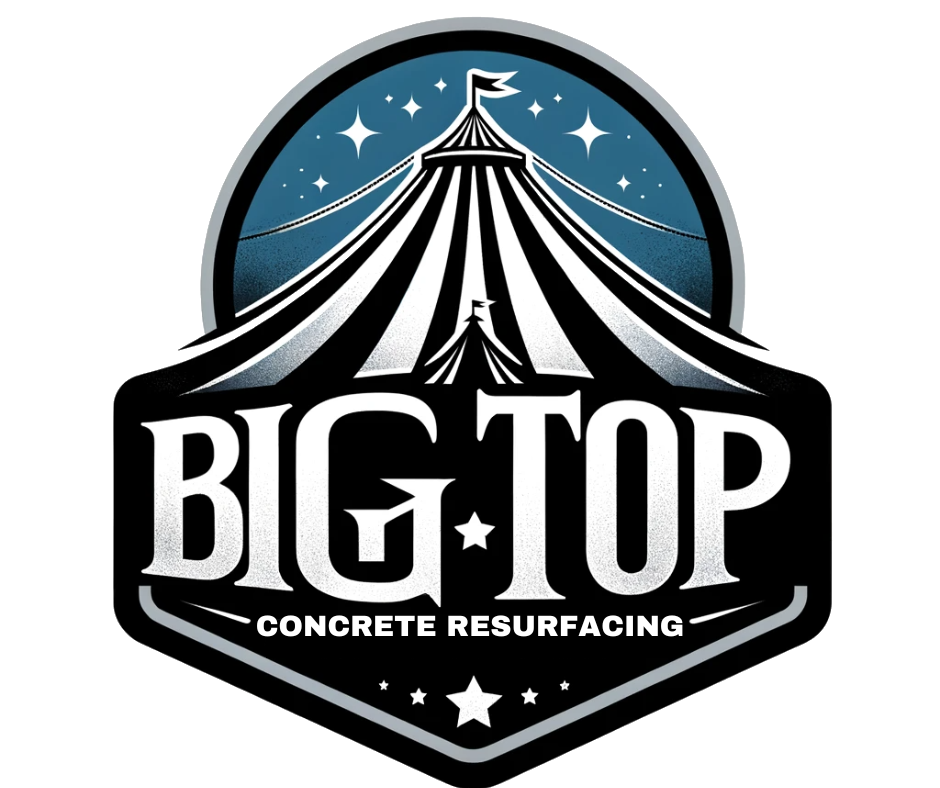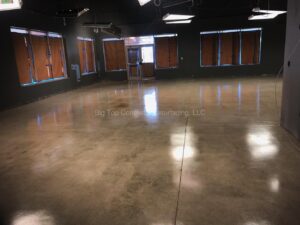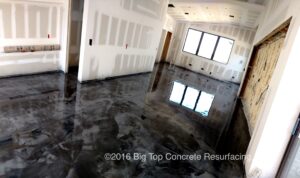What is Epoxy?
Get ready for some chemistry.
As of the date of publishing this page there are generally speaking five classifications of epoxy. The various types of epoxy resins available, each carry their own unique characteristics and applications.
- Standard Epoxy Resin: This is the most commonly used epoxy resin and is suitable for a wide range of applications.
- Waterborne Epoxy Resin: This type of epoxy resin is mixed with water instead of solvents. It is environmentally friendly, has low odor, and is used in applications where low VOC (volatile organic compounds) emissions are required.
- Solvent-Based Epoxy Resin: These resins contain solvents that help in the curing process. They are know for their excellent adhesion, durability, and resistance to chemicals and abrasions. These are the more typical portion of an epoxy flooring system.
- UV-Curable Epoxy Resin: These resins cure when exposed to ultraviolet (UV) light. They offer fast curing time, high gloss, and excellent chemical resistance. They are commonly used in commercial coatings, adhesives, and 3D printing.
- Flexible Epoxy Resins: This type of epoxy resin has a higher degrees of flexibility compared to standard resins. it is used in applications where impact resistance and flexibility are required, such as in composite material and flexible coatings.
- High-Heat Epoxy Resin: These resins can withstand high temperatures and are used in applications where heat resistance is crucial, such as in electrical and aerospace industries.
A More Indepth Look Into the Chemistry of Epoxy
The Chemical Composition of Epoxy
If you want to dive a little deeper into the chemistry of epoxy resins then keep reading. If this is a little too much then scroll on. Various chemicals go into epoxy to make them perform to their individual specifications. Even when it comes to flooring their are numerous specifications and situational properties that epoxy coatings must have:
- Epoxy Monomers: These are the primary building block of the epoxy resin. The most common epoxy monomer is Bisphenol A Diglycidyl Ether (BADGE), which is derived from bisphenol A and epichlorohydrin. Other epoxy monomers include novolac epoxy (very acid resistant), aliphatic epoxy and cycloaliphatic epoxy.
- Hardeners or Curatives: Hardeners are chemicals that react with the epoxy monomers to initiate the curing process (generic term is part B). They are typically amine-based compounds, such as polyamines or aromatic amines. The choice for hardener determines the curing time, temperature resistance and mechanical properties of the epoxy resin.
- Diluents: Diluents are optional additives used to modify the viscosity and handling characteristics of the epoxy resin. They are typically low-viscosity liquids, such as reactive diluents or solvents. Diluents can improve flowability, reduce shrinkage, and enhance the wetting properties of the epoxy resin.
- Fillers: Fillers are solid particles added to epoxy resins to modify their properties. They can enhance strength, improve thermal conductivity, increase viscosity, or provide other specific properties. Common fillers used in epoxy resins are include silica, glass fibers, carbon fibers and mineral powders and for high build floors sand.
- Catalysts and Accelerators: Catalysts and accelerators are additives that help in speeding up the curing process of epoxy resins. They are used in specific applications where fast curing times are required. Common catalysts include tertiary amines, while accelerators include imidazoles and other compounds.
Which Epoxy Flooring for My Home?
Description
What space is the epoxy flooring for?
Will the epoxy floor be for interior, exterior, garage, inside the home?
What is the intended use of the space?
There are various systems built to specific needs ranging from foot traffic to your home mechanic, not every system is built the same.
What is the condition of the existing concrete?
Are there any underlying issues such as moisture or is it even structurally sound?
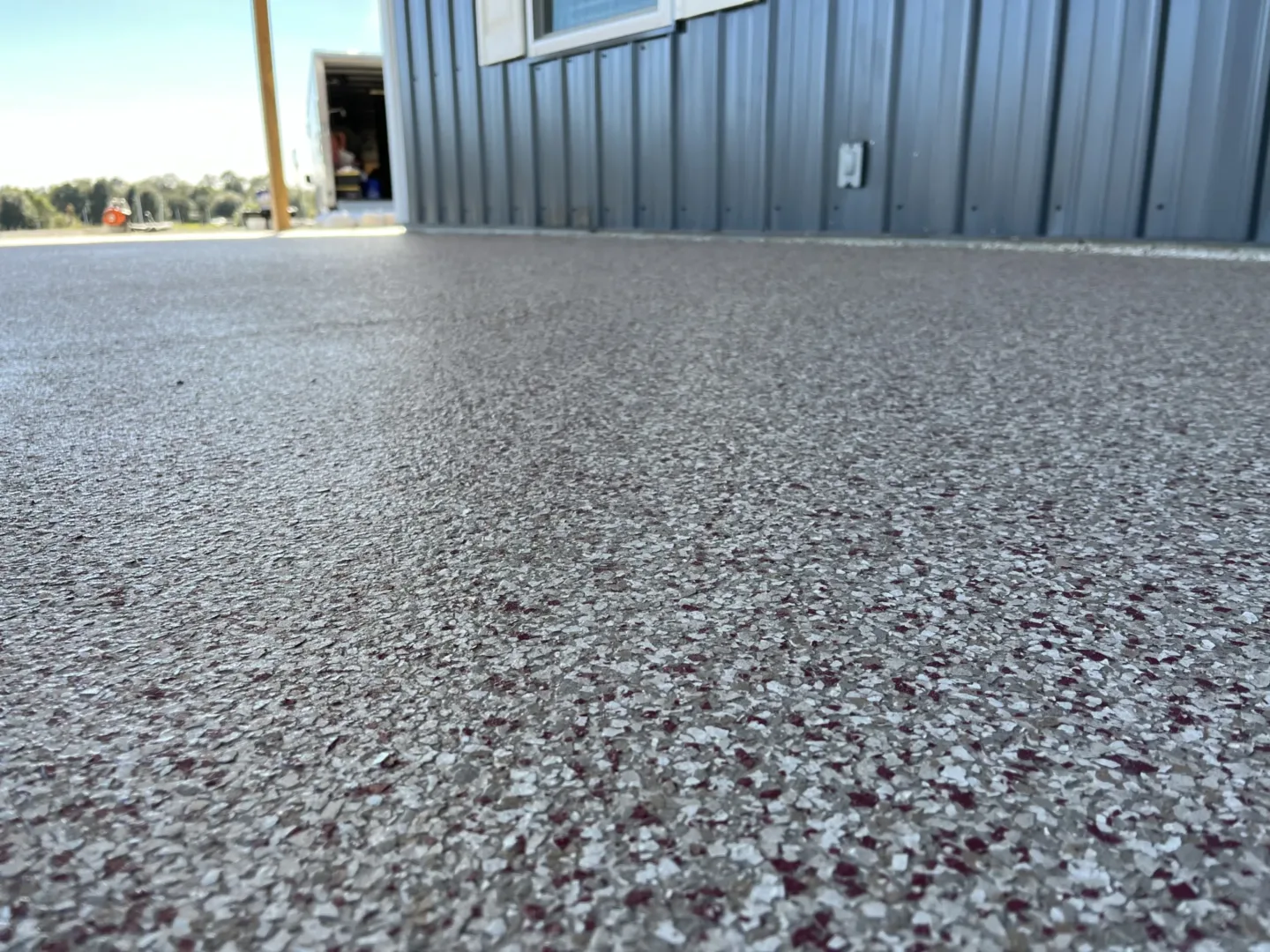
Before considering epoxy flooring, there are several crucial questions that need to be addressed. Additionally, it's important to consider your aesthetic preferences and budget. Epoxy flooring offers a range of options, from simple, utilitarian designs to more advanced styles like metallic epoxy that can replicate the look of marbleized floors, resembling the patterns found on bowling balls.
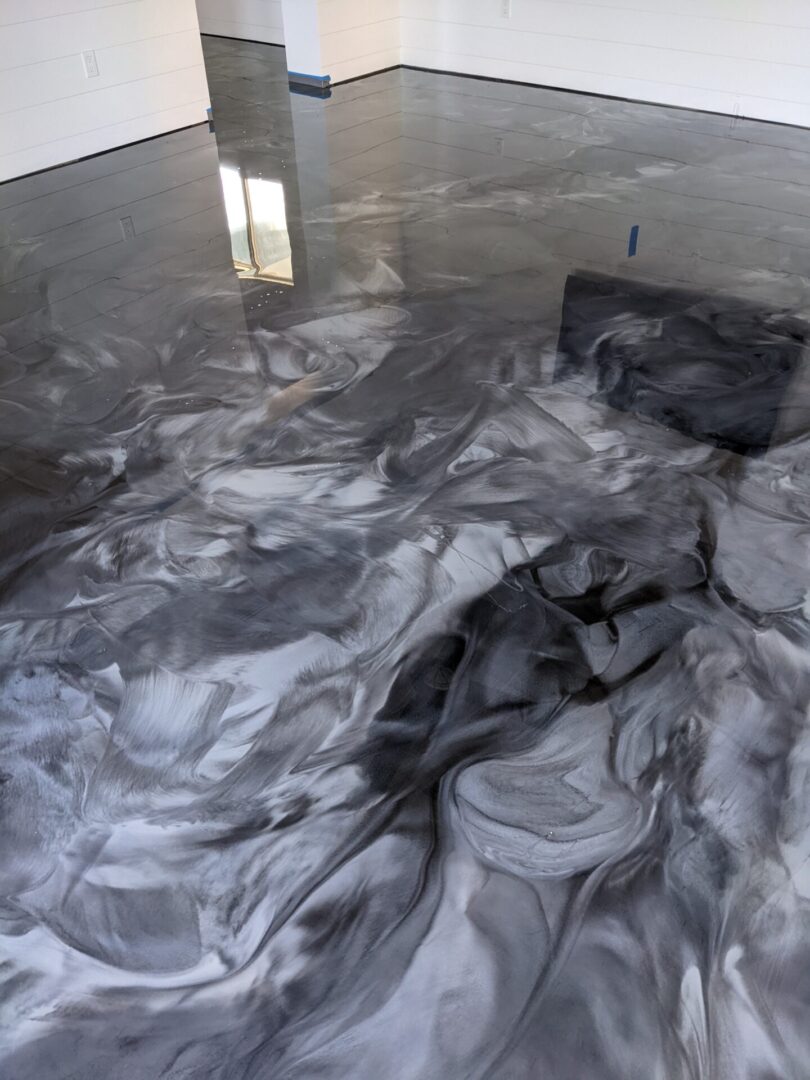
Common Questions About Epoxy Flooring
A Professionals Take On Things
The question of whether epoxy can be installed over tile is a topic of debate in the industry, particularly among new installers. While it is technically possible to install epoxy over tile, it is important to consider several factors before proceeding. Firstly, proper preparation is crucial. Grinding the tile surface may cause tile cracks, and addressing the grout joints can be challenging. Shot blasting is often necessary, but it may not be readily available for smaller companies. Additionally, the grout lines are typically slightly lower than the tiles, requiring extra material to ensure they do not telegraph through the epoxy, which can increase costs significantly. Moreover, if there are any loose or unstable tiles, they can shift over time and cause issues with the epoxy application. Moisture can also be a concern. However, the most significant concern is that epoxy manufacturers typically do not provide warranties for installations over tile. This fact alone should give pause to considering epoxy over tile, as it suggests potential complications and limitations.
The rise of the DIY revolution has given homeowners the impression that they can easily install epoxy flooring themselves. Big box stores offer products that make it seem like a straightforward task for the average person. However, it is crucial to consider the various factors involved in a successful epoxy installation before attempting it yourself.
Attempting DIY epoxy installation can lead to costly mistakes and unsatisfactory results. It is best to rely on the expertise of a professional who understands the complexities involved and can deliver a high-quality, long-lasting epoxy floor.
To accurately determine the installation time for your particular project, it is recommended to consult with a professional epoxy flooring contractor. They will assess the specific details of your project and provide a more precise timeline based on their expertise and experience.
Epoxy has been around since the 1930's and has been an industry standard for durable industrial flooring. Polyurea was created as a coating much later.
The choice between the two depends for floors depends on the specific requirements.
Epoxy is known for its durability, chemical resistance, and versatility. It creates a hard and glossy surface that is resistant to stains, impacts, and abrasion.
Polyurea on the other hand is a bit more flexible and fast curing (something we here at Big Top Concrete Resurfacing, LLC are not too fond of). Polyurea coatings can be applied in a wide range of temperatures and adhere well to various substrates, including concrete.
IN Summary, epoxy is a popular choice for its durability and versatility, while polyurea offers faster curing times and excellent resistance properties, and flexibility.
It is important not to get caught up in the gorilla marketing tactics of companies touting one is 20x stronger than the other. They both have their place in the coatings market but truthfully polyurea sets fast and that is why many companies use, to get the job done quickly. This is not our preferred method, yes speed is important but being thorough and giving material time to absorb is much more important.
